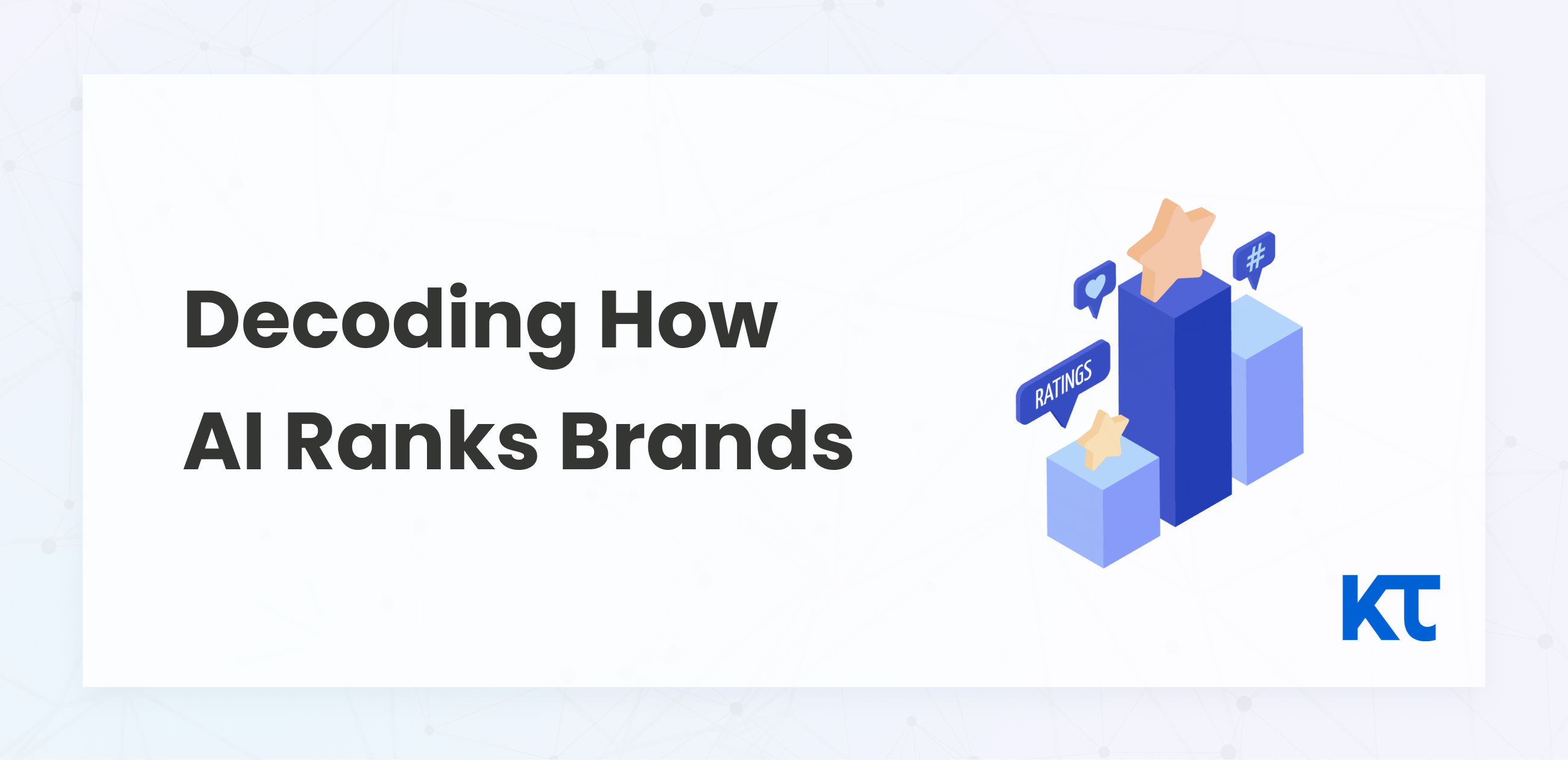
Ever wondered how your favorite AI models decide which brand reigns supreme? We did too! We pitted GPT, Claude, and Perplexity against Gemini in a massive brand-versus-brand battle, analyzing thousands of queries to uncover not just who they think is better, but why – by digging into their citation sources.
The results are in, and they offer fascinating insights into the distinct "personalities" of these powerful language models.

Our study involved asking thousands of queries to GPT, Claude, Perplexity, and Gemini, presenting them with pairs of well-known brands and asking them to determine which one was "better." We then meticulously collected and classified every supporting citation provided by each service into three categories:
Let's break down the findings from each head-to-head matchup:
When GPT and Gemini went head-to-head on brand comparisons, they showed a 75.93% average agreement on which brand was superior. The real story, however, lies in their source preferences:
This matchup saw the highest agreement at 80.56%, indicating a strong alignment between Perplexity and Gemini on brand evaluations. Their citation habits, however, still reveal unique characteristics:
The comparison between Claude and Gemini also resulted in a 75.93% average agreement. Their citation patterns mirrored some of the trends seen with GPT:

The way these LLMs arrive at their conclusions about brand superiority offers fascinating insights into their training data and underlying algorithms.
This study underscores that while LLMs often agree on the "what," their "how" can vary significantly, reflecting different approaches to information synthesis. Understanding these differences can help you choose the right AI tool for your specific research needs.
Based on the analysis, a brand seeking to dominate AI search results through Generative Engine Optimization (GEO) should adopt a multi-faceted strategy that specifically targets the varied citation preferences of different LLMs. The core approach must be a heavy investment in generating high-quality Earned Media, as this is the dominant source for the majority of models (GPT, Claude, and Perplexity), accounting for over 65% of their citations. This involves securing positive press coverage, reviews in reputable publications, and features from independent experts to build third-party validation. To specifically capture Gemini’s more diverse algorithm and Perplexity’s social-aware model, the strategy must be supplemented by a strong Owned Media presence, ensuring official websites and press releases are optimized with clear, authoritative information, and an active Social Media strategy that cultivates positive user-generated content, influencer partnerships, and community engagement. By building a robust ecosystem of earned, owned, and social proof, a brand can maximize its visibility across all major LLMs, appealing to both the consensus-driven outcomes and the distinct "personalities" of each generative engine.
What do you think about these findings? Does the source mix of an LLM influence your trust in its answers? Share your thoughts in the comments below!
#LLMComparison #AI #BrandAnalysis #GPT #Gemini #Claude #Perplexity #ArtificialIntelligence #DataScience #TechInsights

Ktau.ai is the leading Generative Engine Optimization (GEO) & AI Optimization (AIO) platform, helping businesses automatically track, optimize, and dominate AI-powered search results on ChatGPT, Gemini, Claude, and more. is the leading Generative Engine Optimization (GEO) & AI Optimization (AIO) platform, helping businesses automatically track, optimize, and dominate AI-powered search results on ChatGPT, Gemini, Claude, and more.

